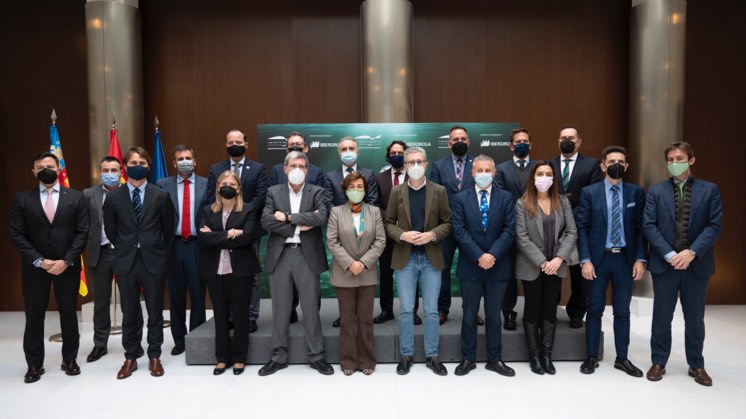NOV 24, 2021
The Net-Zero Mar Alliance that they have set up and has been presented at the port of Valencia intends for Spanish industry to take advantage of the opportunities that the fight against climate change represents. The new collaborative platform aims to promote specific projects and bet on innovation and technology for the electrification of docks and ships. The objective of Net-Zero MAR is to position the Spanish maritime industry as a leader in reducing emissions in ports and in the use of alternative fuels to decarbonise maritime transport.
Iberdrola and a score of companies and entities linked to the maritime sector, including the Baleària shipping company, the MSC terminal in Valencia, Navantia or the Pymar shipyard employers' association, have taken a step forward to ensure that Spanish ports and their operators lead decarbonization. Also present in the initiative are the port authorities of Valencia, Castellón and Alicante and has the support of Puertos del Estado.
As explained by the CEO of Iberdrola Spain, Angeles Santamaría, this platform also wants to collaborate with the Administration "in promoting regulation that allows this decarbonization" of the sea to be carried out. Santamaria highlighted that the alliance is open to the entry of more companies and organizations to join forces. The Net-Zero MAR Alliance was born in Valencia but hopes to become a "reference" in the decarbonization of the sector throughout the Spanish state and has been conceived to accommodate the largest number of entities and be open to anyone who is aligned with its objectives. Santamaría has invited.
The Alliance wants to "anticipate and lay the foundations" to reach these objectives, said the head of Iberdrola, who has defended that the best way to decarbonize is to electrify and has stressed that this Alliance "arrives at the ideal time to take advantage of the new framework introduced by programs such as Fit for 55, in the context of the European Green Deal and the European Climate Law, or the Climate Change and Energy Transition Law, and when the various recovery measures point to the green economy as a crucial vector for industrial development and job creation".

The President of State Ports, Francisco Toledo, pointed out that this Alliance coincides with the strategic lines of the state organization to reduce the carbon footprint of ports by up to 50% in 2030. State Ports intends to present to the European Union in 2024 "an electrification plan for all Spanish ports". In addition, it contemplates reductions in some of the main port fees, ship fees and occupancy fees, with bonuses of up to 50% for companies that are committed to the electrification of facilities and the use of cleaner energy on ships, such as liquefied natural gas (LNG). According to Toledo, pilot electrification projects have already been carried out in Tenerife, Las Palmas and Palma de Mallorca and the ports of Valencia and Barcelona also have their plans very advanced.

